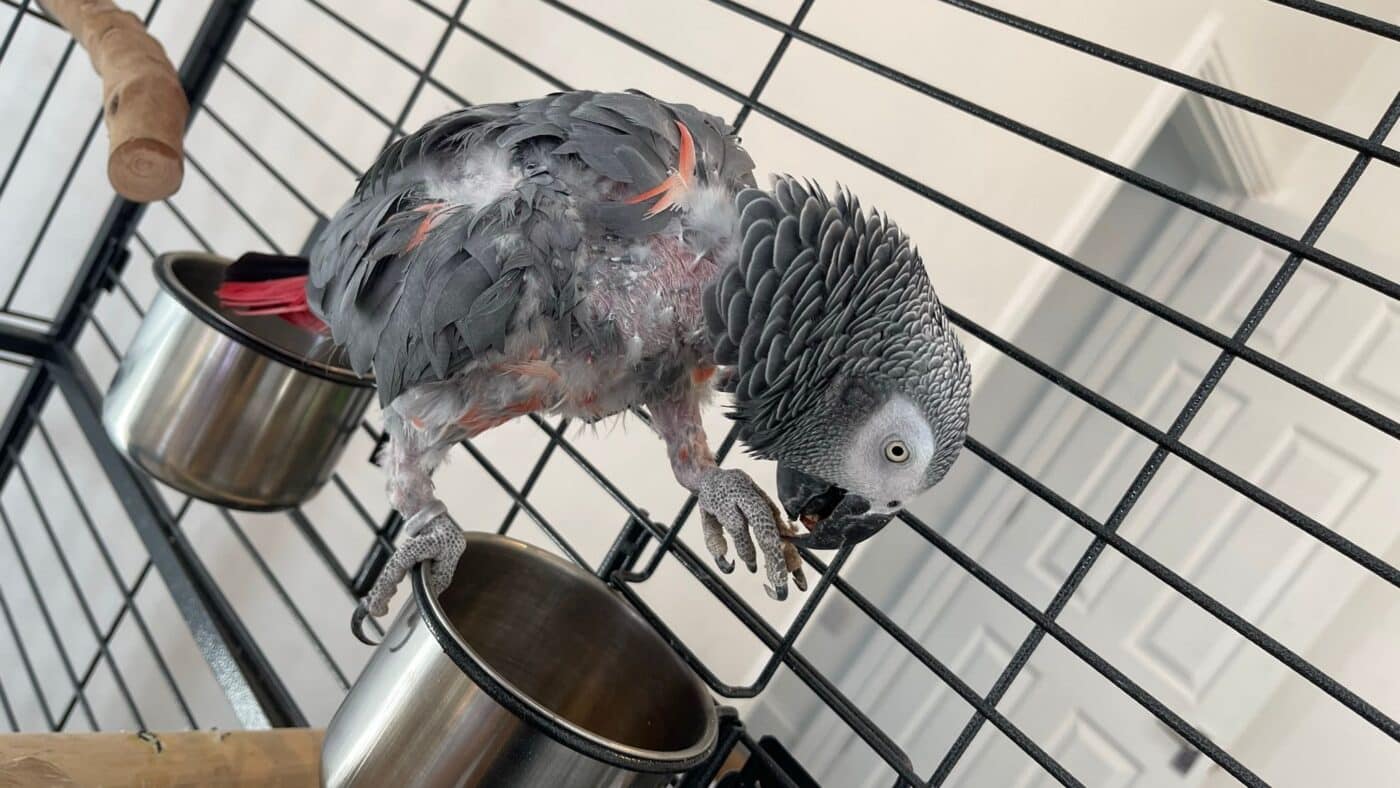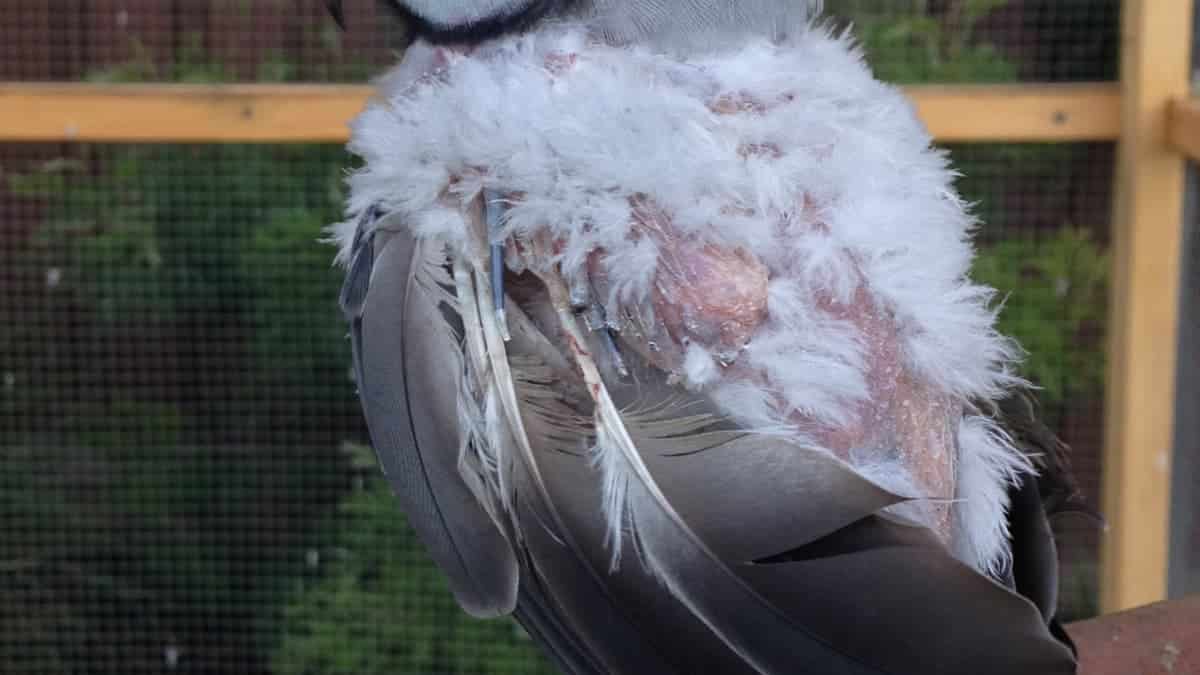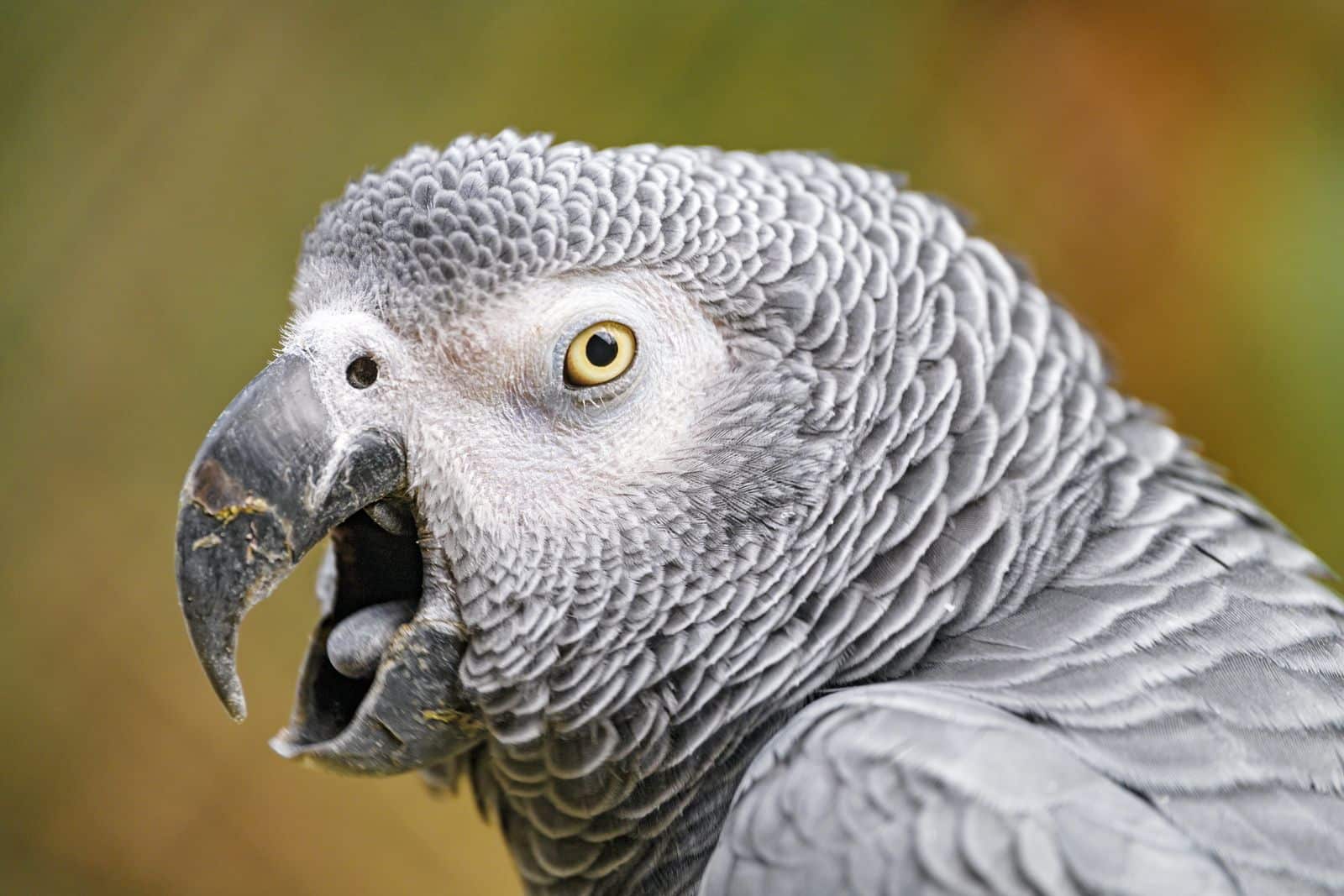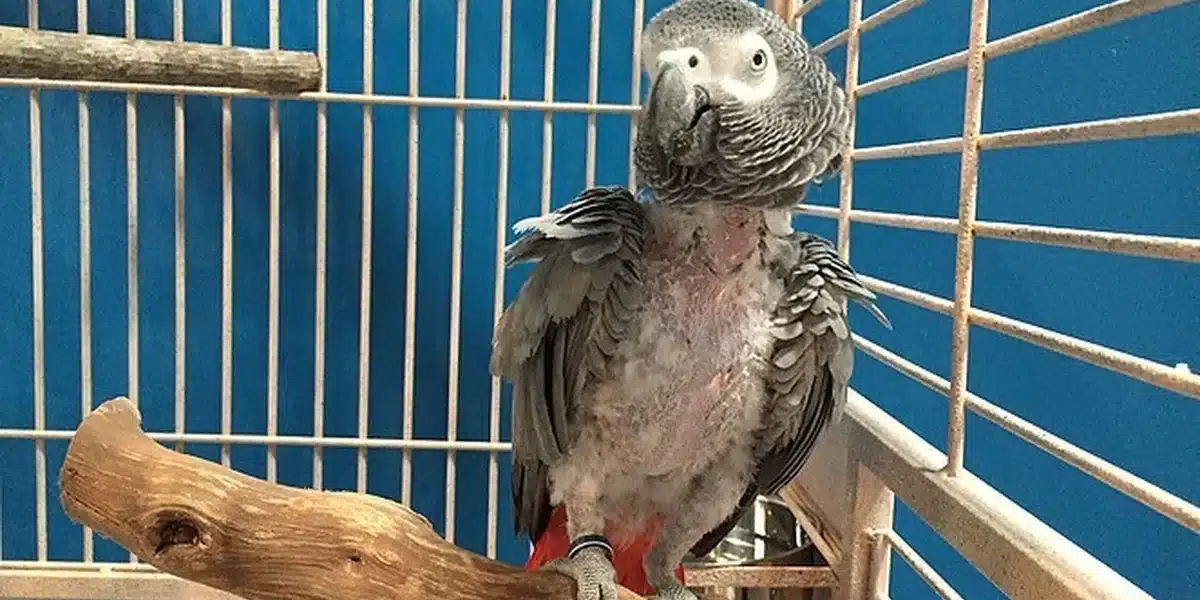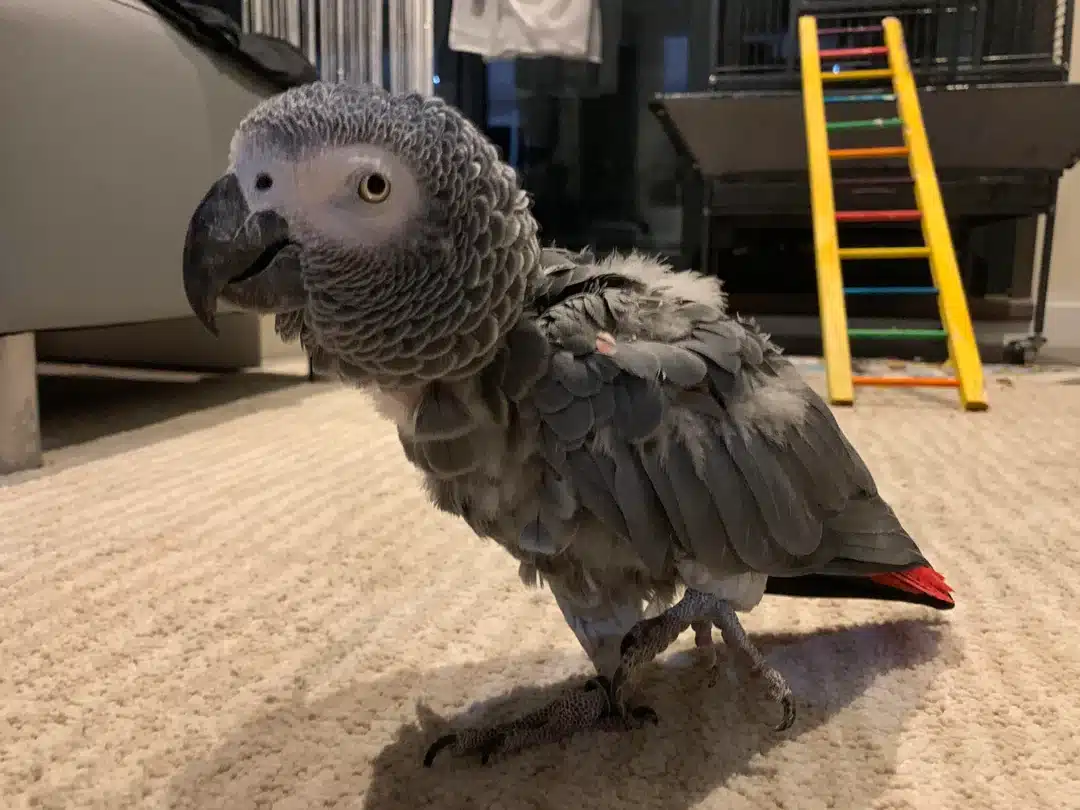Blogs, Behaviors & Training
Understanding African Grey Parrot Feather Plucking
Understanding African Grey Parrot Feather Plucking
Have you ever wondered why African Grey parrots engage in feather plucking? It’s an intriguing behavior that can pose challenges for both the parrot and its caregiver. Understanding the causes behind this behavior is crucial to address the issue effectively and providing the best care for your feathered friend.
In this article, we will delve into the world of African Grey parrot feather plucking, exploring the common causes, the impact it can have on the bird’s well-being, and expert tips to address and prevent this behavior. By the end, you’ll be equipped with the knowledge and tools to help your African Grey parrot overcome feather plucking and ensure a happier and healthier life for them.
Key Takeaways:
- Feather plucking is a behavior exhibited by African Grey parrots that can have physical and psychological causes.
- Understanding your parrot’s behavior is crucial in recognizing and addressing feather plucking.
- Creating an enriching environment and implementing behavioral training techniques can discourage feather plucking.
- Medical interventions and alternative therapies are available to treat feather plucking in African Grey parrots.
- Dealing with feather plucking requires a compassionate approach and creating a supportive environment for your parrot.
Causes of Feather Plucking in African Grey Parrots
Feather plucking is a concerning behavior that African Grey parrots may exhibit, and it is essential to understand the underlying reasons behind this behavior to address it effectively. There are both physical and psychological factors that can contribute to feather plucking in African Grey parrots, and identifying the root cause is crucial for providing appropriate support and treatment.
Physical Causes
In some cases, feather plucking in African Grey parrots can be attributed to physical factors. These may include:
- Poor Nutrition: A diet lacking essential nutrients can lead to unhealthy feather growth, prompting the parrot to engage in feather plucking.
- Skin Irritation: Skin conditions, such as dryness or mites, can cause discomfort and lead to feather plucking as a means of relief.
- Pain or Discomfort: Underlying health issues, such as infections or injuries, can trigger feather plucking as the parrot tries to alleviate its discomfort.
Psychological Causes
Mental and emotional factors can also contribute to feather plucking in African Grey parrots. These may include:
- Stress and Anxiety: Parrots may pluck their feathers in response to stressful situations, such as changes in their environment or social interactions.
- Boredom: Lack of mental stimulation and environmental enrichment can lead to boredom, which may manifest as feather plucking in African Grey parrots.
- Loneliness or Lack of Social Interaction: African Grey parrots are highly sociable birds, and a lack of companionship or social interaction can result in anxiety and feather plucking.
By identifying the specific cause of feather plucking in your African Grey parrot, you can take appropriate steps to address it and help your feathered friend overcome this behavior. Consulting with a veterinarian or an avian behavior specialist can provide valuable insights and guidance tailored to your parrot’s individual needs.
| Possible Causes of Feather Plucking | Physical | Psychological |
|---|---|---|
| Poor Nutrition | Stress and Anxiety | |
| Skin Irritation | Boredom | |
| Pain or Discomfort | Loneliness or Lack of Social Interaction |
Recognizing African Grey Parrot Behavior Problems
African Grey parrots are intelligent and social creatures, capable of displaying a wide range of behaviors. While many of their actions are normal and should be expected, some behaviors may indicate underlying problems that require attention. Recognizing these behavior problems is crucial for identifying and addressing issues such as feather plucking in African Grey parrots.
Feather plucking, a common behavior problem among African Grey parrots, involves the excessive removal of feathers by the bird itself. However, it’s important to note that not all feather plucking is abnormal. African Grey parrots may preen and groom themselves, which is a natural behavior for maintaining feather health. So, how do you differentiate between normal preening and problematic feather plucking?
One key factor to consider is the extent and intensity of the behavior. Normal preening should be relatively gentle and sporadic, while feather plucking is characterized by repetitive and vigorous pulling of feathers. Feather plucking may also result in bald patches or wounds, indicating a problem that requires attention.
Another important aspect to consider is the context in which the behavior occurs. Feather plucking in African Grey parrots may be triggered by various factors, including stress, boredom, illness, or even discomfort. By observing your parrot’s behavior patterns and noting any changes or triggers, you can gain valuable insights into the underlying causes of feather plucking.
It’s worth mentioning that feather plucking can also be a result of underlying psychological issues, such as anxiety or loneliness. African Grey parrots are highly social creatures and may exhibit behavior problems when they feel isolated or lack mental stimulation. Therefore, providing a stimulating environment and engaging with your parrot through interactive toys and regular social interaction can play a significant role in addressing feather plucking.
By recognizing behavior problems early on and understanding the possible causes behind them, you can take proactive steps to address and resolve feather plucking in your African Grey parrot. In the next section, we will explore effective strategies and tips to help stop feather plucking and promote a healthier and happier bird.
Tips to Stop African Grey Parrot Feather Plucking
If your African Grey parrot is engaging in feather plucking behavior, it’s essential to take action to discourage and prevent this habit. Here are some practical tips and suggestions to help you address feather plucking in your parrot:
- Environmental Enrichment: Create a stimulating environment for your African Grey parrot to keep their mind and beak occupied. Provide a variety of toys, puzzles, and interactive objects that encourage mental and physical stimulation.
- Diet Modification: Ensure your parrot is receiving a well-balanced diet that meets their nutritional needs. Consult with an avian veterinarian to determine if any dietary deficiencies or imbalances are contributing to feather plucking. Supplement their diet with fresh fruits, vegetables, and appropriate supplements, as recommended.
- Behavioral Training Techniques: Employ positive reinforcement training methods to redirect your parrot’s energy towards more desirable behaviors and activities. Reward them with treats, praise, and attention when they engage in appropriate behaviors, such as preening themselves or playing with their toys. Consult with an avian behaviorist or trainer for guidance on effective training techniques specific to feather plucking.
- Addressing Underlying Factors: Identify and address any underlying physical or psychological factors that may be contributing to feather plucking. Take your parrot for regular check-ups with an avian veterinarian to rule out any health issues. If necessary, explore potential stressors and make changes to their environment or routine to minimize stress and anxiety.
- Monitoring and Patience: Keep a close eye on your parrot’s behavior and progress. Feather plucking can take time to overcome, so be patient and consistent in implementing these strategies. Celebrate small victories along the way and provide encouragement to your parrot as they make progress.
By implementing these tips and strategies, you can help redirect your African Grey parrot’s energy and reduce feather plucking. Remember, addressing feather plucking requires a holistic approach that considers both physical and psychological well-being. Consult with professionals to tailor a plan that suits your parrot’s specific needs.
African Grey Parrot Feather Plucking Treatment
Feather plucking is a concerning behavior that African Grey parrots may exhibit. If your parrot is engaging in this behavior, it’s important to explore the available treatment options to address the underlying causes. From medical interventions to alternative therapies, there are various approaches that can assist in managing feather plucking in African Grey parrots.
Medical Interventions
One treatment option for African Grey parrot feather plucking is medical intervention. Consulting with a veterinarian who specializes in avian medicine is crucial for a proper diagnosis and treatment plan. Your veterinarian may prescribe medications to address any underlying health issues that may be contributing to the feather plucking behavior. It’s important to follow the prescribed dosage and monitor your parrot’s response.
Veterinary Procedures
In some cases, veterinary procedures may be necessary to treat feather plucking in African Grey parrots. These procedures may include determining the cause of the behavior through diagnostic tests, such as blood work or skin biopsies. Surgical interventions, such as removal of painful ingrown feathers or correction of anatomical abnormalities, may be recommended by your veterinarian to alleviate discomfort and reduce the urge to pluck feathers.
Alternative Therapies
There are also alternative therapies available that can complement or be used as standalone treatments for feather plucking in African Grey parrots. These therapies focus on addressing the psychological factors that may contribute to the behavior. Examples include behavioral modification techniques, such as positive reinforcement training and environmental enrichment, which can help redirect your parrot’s energy and provide mental stimulation.
Additionally, holistic approaches like aromatherapy, music therapy, and the use of specialized feather plucking deterrent sprays may be incorporated into a comprehensive treatment plan. It’s important to consult with an avian behaviorist or experienced avian veterinarian to determine the most appropriate alternative therapies for your African Grey parrot.
Remember, every parrot is unique, and what works for one may not work for another. It’s important to consult with professionals who have experience in treating feather plucking in African Grey parrots to ensure the best possible outcome for your feathered companion.
Dealing with Feather Plucking in African Grey Parrots
Dealing with feather plucking in African Grey parrots can be a challenging and emotional process. It is essential to approach this issue with compassion and understanding to help your parrot overcome this behavior. Creating a supportive environment plays a crucial role in addressing feather plucking in African Grey parrots.
One key aspect to consider when dealing with feather plucking is the emotional well-being of your parrot. Feather plucking can be caused by various factors, including stress, boredom, or underlying health conditions. By identifying and addressing these emotional triggers, you can help alleviate your parrot’s urge to pluck its feathers.
Creating a Supportive Environment
Providing your African Grey parrot with a stimulating and enriching environment is vital to prevent feather plucking. Ensure that your parrot has plenty of toys, puzzles, and activities to keep its mind engaged and its beak occupied. This can help divert their attention away from feather plucking and promote healthy alternatives.
Establishing a consistent routine and incorporating regular social interaction with your parrot can also be beneficial. Interact with your parrot through play, training sessions, or simply spending quality time together. This can help reduce stress and provide a sense of security, which in turn can discourage feather plucking behaviors.
Seeking Professional Help
If your African Grey parrot’s feather plucking persists or worsens despite your efforts, it is crucial to seek professional advice from an avian veterinarian or a certified parrot behaviorist. They can help identify any underlying medical issues and provide guidance on specialized treatments or behavioral modifications to address the feather plucking.
Remember, patience and perseverance are key when dealing with feather plucking in African Grey parrots. Every parrot is unique, and it may take time to find the most effective strategies for your feather-plucking parrot. Stay committed to providing a loving and supportive environment, and never hesitate to consult experts for guidance.
By taking proactive steps and implementing the right approach, you can help your African Grey parrot overcome feather plucking and improve its overall well-being. Together, you can create a happy and healthy life for your cherished feathered friend.
Common Reasons for African Grey Parrot Feather Plucking
Feather plucking is a common behavior observed in African Grey parrots and can be caused by several factors. By understanding these triggers, you can take proactive steps to prevent feather plucking in your parrot.
Stress
One of the most significant reasons for African Grey parrot feather plucking is stress. These intelligent birds are sensitive to changes in their environment, such as loud noises, frequent disruptions, or the absence of their primary caretaker. Stressful events can lead to anxiety, which manifests as feather plucking behavior.
Boredom
African Grey parrots are highly intelligent and require mental stimulation to thrive. When they are bored or lack environmental enrichment, they may resort to feather plucking as a self-soothing mechanism. Providing toys, puzzles, and interactive activities can help alleviate boredom and prevent feather plucking.
Health Conditions
Underlying health issues can also contribute to feather plucking in African Grey parrots. Skin infections, allergies, hormonal imbalances, and nutritional deficiencies can cause discomfort, leading the parrot to pluck its feathers in an attempt to alleviate the irritation. Regular veterinary check-ups and a balanced diet can help address these health-related triggers.
Social Interaction
African Grey parrots are social creatures and require regular interaction with their human caretakers. If they feel lonely or neglected, they may engage in feather plucking behavior as a cry for attention. Spending quality time with your parrot, providing companionship, and engaging in activities together can help fulfill their social needs and reduce the likelihood of feather plucking.
| Common Reasons for African Grey Parrot Feather Plucking | Description |
|---|---|
| Stress | Changes in the environment, disruptions, or the absence of the primary caretaker can cause anxiety in African Grey parrots, leading to feather plucking. |
| Boredom | Lack of mental stimulation and environmental enrichment can result in feather plucking as a self-soothing mechanism. |
| Health Conditions | Underlying health issues like skin infections, allergies, hormonal imbalances, and nutritional deficiencies can cause discomfort, triggering feather plucking behavior. |
| Social Interaction | African Grey parrots require regular social interaction with their caretakers. Loneliness or neglect may prompt feather plucking as a plea for attention. |
Conclusion
Understanding the causes of African Grey parrot feather plucking is crucial in finding effective solutions to this issue. By addressing the physical and psychological factors that contribute to feather plucking, you can help your parrot lead a healthier and happier life.
Creating a safe and stimulating environment is key to preventing feather plucking in African Grey parrots. Providing ample opportunities for mental and physical enrichment, such as interactive toys, puzzles, and regular exercise, can divert your parrot’s attention away from destructive behaviors.
In addition, maintaining a balanced diet that meets the nutritional requirements of your African Grey parrot is essential. Consult with a veterinarian specializing in avian care to ensure your parrot’s diet is appropriate and includes essential nutrients for maintaining healthy plumage.
Remember, addressing feather plucking in African Grey parrots requires patience and consistency. With time and the implementation of appropriate solutions, you can reduce feather plucking behaviors and promote the overall well-being of your beloved parrot.
FAQ
What are the common causes of feather plucking in African Grey parrots?
Feather plucking in African Grey parrots can be triggered by various factors, including environmental stress, boredom, improper diet, lack of mental stimulation, medical conditions, and social isolation.
How can I recognize behavior problems in my African Grey parrot?
Look out for signs such as excessive feather plucking, aggression, vocalization changes, decreased appetite, and repetitive behaviors. These may indicate behavior problems in African Grey parrots.
What tips can I follow to help stop feather plucking in my African Grey parrot?
Some effective tips to stop feather plucking in African Grey parrots include providing a stimulating environment, offering a balanced and nutritious diet, introducing interactive toys, maintaining a regular routine, and seeking professional advice if needed.
What are the available treatments for African Grey parrot feather plucking?
Treatment options for African Grey parrot feather plucking may include veterinary evaluations to rule out underlying medical conditions, medication, behavioral modification techniques, and alternative therapies like aromatherapy or acupuncture.
How can I deal with the challenges of having an African Grey parrot with feather plucking?
Dealing with feather plucking in African Grey parrots requires patience, understanding, and creating a supportive environment. Providing a balanced diet, offering mental and physical stimulation, and seeking emotional support from avian experts or support groups can also be beneficial.
What are the common reasons for feather plucking in African Grey parrots?
Feather plucking in African Grey parrots can be caused by stress, boredom, separation anxiety, lack of social interaction, improper husbandry practices, inadequate mental stimulation, or an attempt to relieve itchiness from skin irritations.

